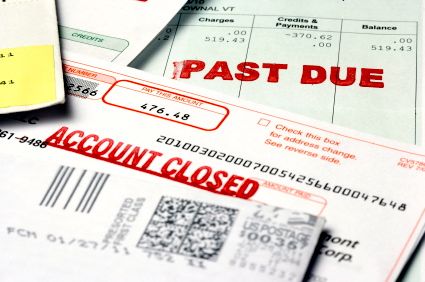 Financial elder abuse is the fastest growing problem that seniors are encountering today. In fact, elder financial abuse is one of the top 3 most common types of elder abuse. To best learn how to avoid financial elder abuse, it is necessary to first understand what elder financial abuse exactly is and how often it occurs.
Financial elder abuse is the fastest growing problem that seniors are encountering today. In fact, elder financial abuse is one of the top 3 most common types of elder abuse. To best learn how to avoid financial elder abuse, it is necessary to first understand what elder financial abuse exactly is and how often it occurs.
In This Elder Abuse Prevention Article
What is Elder Financial Abuse
Statistics on Financial Elder Abuse
Signs of Elder Financial Abuse
Elder Abuse Prevention Tips
What is Elder Financial Abuse?
According to the National Adult Protective Services Association, Financial elder abuse is the “illegal or improper use of an older person’s or vulnerable adult’s funds, property or assets.”
Avoiding elder financial abuse is extremely challenging as it comes in many different forms. Financial Elder abuse is often in the form of financial schemes involving investments that do not deliver as promised or deceptive financial planning practices. Other instances of elder financial abuse include identity theft, overcharging for medical care and products, sweepstakes scams, reverse mortgage schemes, or family members or guardians making unauthorized withdrawals or transactions.
With the wide array of senior scams out there, the first step in learning elder abuse prevention is to understand what are the most common forms.
Elder Financial Abuse Statistics
According to the American Psychological Association, 2.1 million seniors are victims of elder abuse in America, which includes victims of elder financial abuse.
In response to a request for information from the Consumer Financial Protection Bureau, the Certified Financial Planner Board of Standards conducted a survey of 2,649 financial planners to gain a better understanding of elder financial abuse. This study found that victims of financial elder abuse lose an estimated $140,500 and that more than half of the respondents had worked with at least one senior who had fallen prey to unfair or deceptive practices. This, alone, shows the importance of elder abuse prevention.
This Elder Financial Abuse report further states that 73 percent of financial planners reported knowing of at least one instance of a senior being invited to a sales pitch disguised as an educational seminar. Fifty-eight percent reported that they knew of at least one senior who had received an unsolicited pitch for financial services or products. These pitches often include investment opportunities that are marketed at high yield and low cost.
It was also noted that most of the time, the senior knows the elder financial abuser. According to an Elder Finance Abuse survey, 35 percent of their respondents mentioned that the elder financial abuse cases involved seniors who always or often personally knew their abuser. While 20 percent of the respondents reported that the people who took advantage of the seniors in the cases they were aware of were the seniors’ guardians or held the seniors’ power of attorney.
In addition, the board noted that a previous study conducted by MetLife found that seniors had lost $2.9 billion to elder financial abuse just in 2010.
Signs of Elder Financial Abuse
A key component in elder financial abuse prevention is the ability to quickly spot red flags so the senior can stop it before it happens or to stop it as soon as possible. Seniors experiencing diminished mental capacity or loneliness are more susceptible to scammers; therefore, it is even more important to prepare ahead to so your loved one can avoid any elder financial abuse
Signs that financial elder abuse might already be happening include unexplained withdrawals from the senior’s bank accounts, isolation from friends and family, items missing from their home, not paying bills, not having the money to buy medication or food, or suspicious new friends or advisors.
Elder Financial Abuse Prevention
To avoid elder financial abuse, seniors and their family members should always make sure that they keep their social security cards in a secure place, shred financial information and documents with personal information, ignore emails that ask for money or personal information, keep a close eye on bank statements to look for suspicious activity, review emails and mails for suspicious solicitations and sign up for do not call lists to avoid phone solicitations.
If your senior loved one does not live with you, another important part of elder financial abuse prevention is staying in contact and visiting your loved one regularly. This will allow you to easily recognize the signs of possible elder financial abuse as quickly as possible. Remember, financial elder abuse can come from a caregiver, friend or even a family member. Regular and unscheduled visits to your senior loved one’s place can be a good way of preventing elder financial abuse.
Copyright © 2012 SeniorCareHomes.com. All Rights Reserved.
NOTE: If you would like to use this Assisted Living article on your website or your blog, you MUST include the following immediately below the article.
 About the Author: Catharine D. Allado is a Senior Care Expert and the COO of SeniorCareHomes.com – A trusted and comprehensive online directory of Senior Care Homes such as Assisted Living, Nursing Homes and other types of Senior Housing in California, Florida, New York, Arizona and the rest of the United States. SeniorCareHomes.com also provides FREE Assisted Living options to help seniors and families find the best Senior Housing on the planet!
About the Author: Catharine D. Allado is a Senior Care Expert and the COO of SeniorCareHomes.com – A trusted and comprehensive online directory of Senior Care Homes such as Assisted Living, Nursing Homes and other types of Senior Housing in California, Florida, New York, Arizona and the rest of the United States. SeniorCareHomes.com also provides FREE Assisted Living options to help seniors and families find the best Senior Housing on the planet!
Articles Related To Elder Financial Abuse:
- Protecting Your Home From Burglaries
- Elder Abuse Prevention Tips
- Ways to Avoid Identity Theft
- What To Do When They Become Victim of Identity Theft
- Senior Finances – Spam Scams
- Helping Seniors with Daily Money Management
- Signs Senior Needs Help Managing Finances
Other SeniorCareHomes.com Helpful Links:
- Seniors Online Community & Elder Financial Abuse Discussion Forum
- Senior Care Facility Search
- Senior Facility Registration
Catharine “Kate” is a Certified Administrator for Residential Care Facilities for the Elderly (RCFE) and an Expert Senior Care Advisor. Kate’s grandmother battled Alzheimer’s Disease and Kate personally understands what millions of families are going through. Kate and her team are very passionate in empowering Seniors and their families by providing them with the Best Available Senior Care Options based on Senior’s care needs, preferred location and family’s budget.


